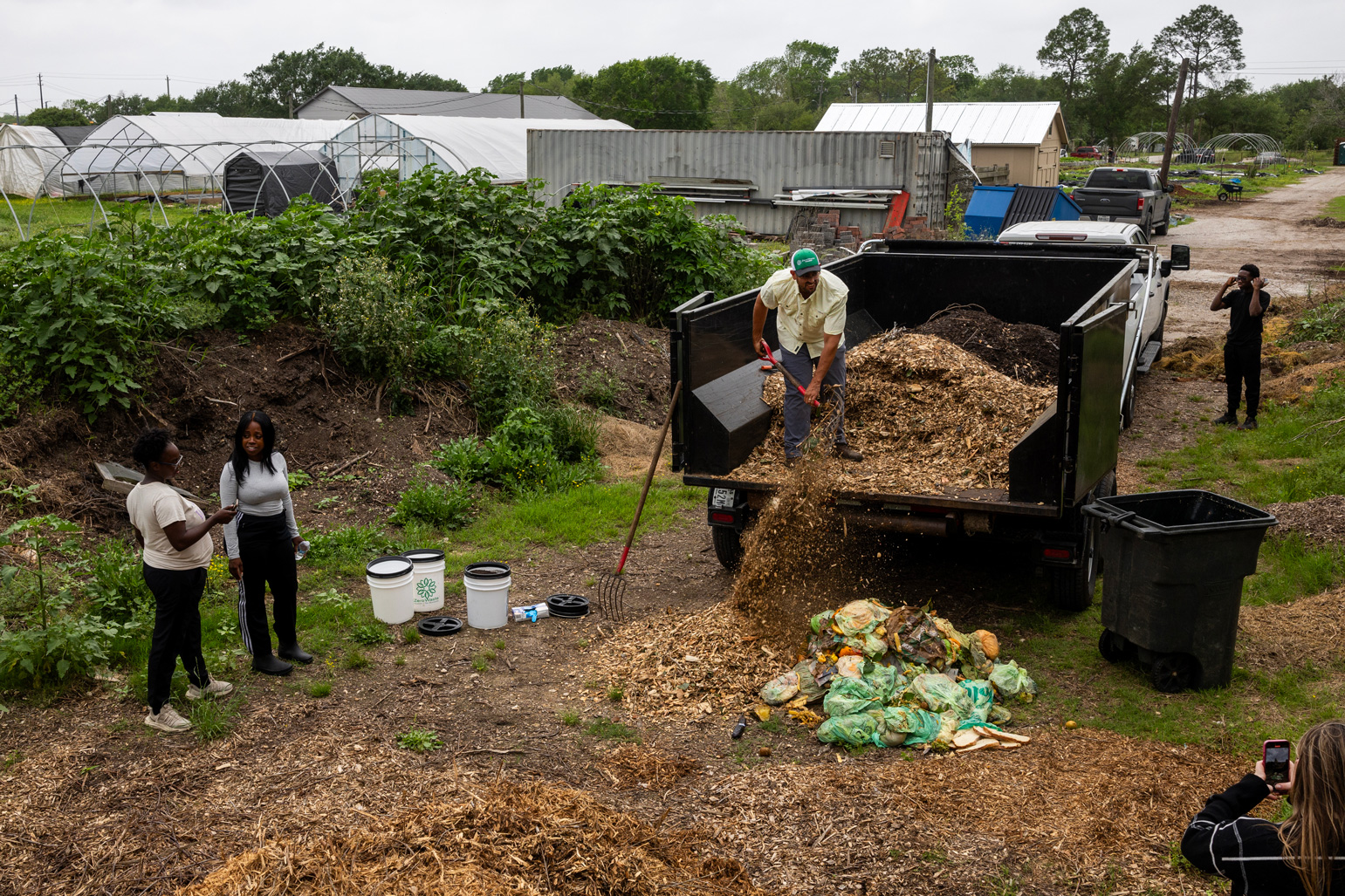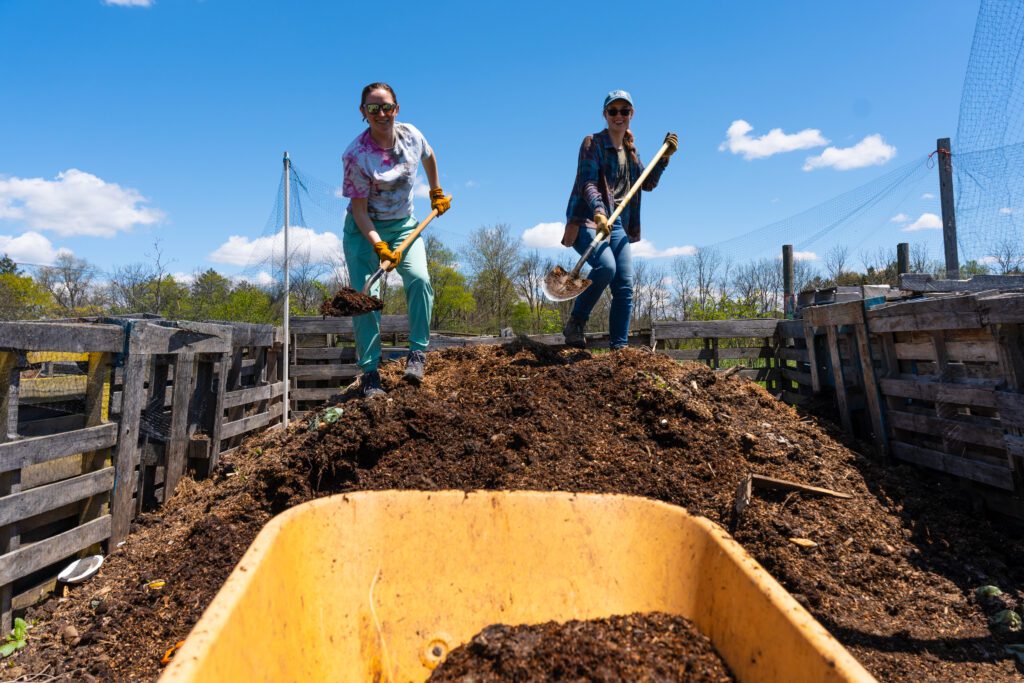
Compost Together: How Community Composting Boosts Homestead Resilience
Did you know that rural communities contribute significantly to landfill waste, often with perfectly good composting material going unused? But what if that waste could become the foundation for richer soil, healthier gardens, and stronger community ties? Community composting initiatives offer a powerful solution, transforming discarded organic matter into a valuable resource for homesteaders and fostering resilience within rural areas. In this post, we'll explore the numerous environmental and economic benefits of community composting and provide practical steps to get involved or even start your own initiative. With rising fertilizer costs and a growing awareness of sustainable living, now is the perfect time to harness the power of community composting for a thriving homestead and a stronger community.

A community gathers for a composting workshop, demonstrating the collaborative spirit and shared learning that strengthens rural areas through sustainable practices.
What is Community Composting and Why Does it Matter?
Community composting refers to shared composting systems managed collectively by a group of people. These initiatives can take many forms, ranging from centralized composting facilities to neighborhood drop-off sites and educational programs. Unlike traditional backyard composting, community composting offers the benefits of scale and collaboration. This means handling larger volumes of organic waste, accessing a more diverse range of feedstocks for richer compost, and benefiting from the shared knowledge and experience of fellow participants.
Many hold misconceptions about community composting, worrying about unpleasant smells or attracting pests. However, with proper management and adherence to best practices, these concerns can be effectively addressed. Community composting offers a scalable and accessible solution to food waste, providing significant benefits for individual homesteaders and the broader community. It exemplifies sustainable living and embodies the spirit of regenerative agriculture.
The Benefits for Homesteaders: Soil, Savings, and Sustainability
For homesteaders striving for self-sufficiency and sustainability, community composting presents a compelling opportunity. The high-quality compost produced from diverse feedstocks leads to healthier plants and higher yields. This is because community composting often incorporates a wider variety of organic materials than a single household might generate, resulting in a more balanced and nutrient-rich end product. Properly composted material improves soil structure, aeration, and water retention, creating an ideal environment for plant growth.
Moreover, community composting drastically reduces the reliance on expensive fertilizers and soil amendments. Depending on the size of your garden and the availability of compost, you could potentially save hundreds of dollars each year. But the benefits extend beyond just cost savings. Community composting significantly reduces landfill waste, lowers greenhouse gas emissions, and shrinks your homestead's carbon footprint.
One of the often-overlooked advantages is access to expertise. By participating in a community composting initiative, you gain access to the shared knowledge and experience of other members. You can learn from their successes and failures, troubleshoot composting challenges, and expand your understanding of sustainable gardening practices. It’s a valuable form of rural skills sharing.

This image shows different labeled compost stages, from initial raw ingredients to final, nutrient-rich compost. Understanding these stages is key to effective community composting and soil health.
Building Community Resilience: Social and Economic Advantages
Community composting is more than just a waste management solution; it’s a powerful tool for building community resilience. It strengthens community bonds by fostering connections and collaboration among residents through a shared project. People from diverse backgrounds come together, working towards a common goal and building relationships that extend beyond the compost pile.
This collaborative spirit enhances local food security. By providing access to high-quality compost, community composting enables increased local food production, reducing reliance on external food systems and promoting self-sufficiency. This is especially important in rural areas where access to fresh produce may be limited.
Furthermore, community composting can create job opportunities and stimulate local economic growth. Successful initiatives can develop into local composting businesses, providing services to residents and generating income for the community. There are also opportunities for creating related businesses, such as compost delivery services or gardening supply stores. Educational opportunities are also abundant, including composting workshops, gardening classes, and informal knowledge sharing within the community, reinforcing the practice of sustainable living.

A diverse array of vegetables is displayed in harvest baskets, grown in a community garden enhanced by composting efforts. This picture shows food security.
Starting or Joining a Community Composting Initiative: Practical Steps
Starting or joining a community composting initiative requires careful planning, collaboration, and a commitment to best practices. Begin by researching and assessing the needs of your local community. Identify potential composting sites and research different composting methods, such as vermicomposting, windrow composting, or aerated static pile composting.
Community engagement is crucial. Gather support from local residents, build partnerships with local organizations (such as schools, churches, or community gardens), and educate the community about the benefits of composting. Be prepared to address any concerns or misconceptions they may have.
Understanding local regulations and obtaining the necessary permits is essential. Contact your local government to learn about zoning laws, composting regulations, and any other requirements. Explore funding opportunities and resources. Look for grant programs offered by government agencies, foundations, or non-profit organizations. Consider fundraising strategies, such as crowdfunding or community events. In-kind donations of materials or labor can also be valuable.
Implement best practices for compost management, odor control, and pest management. Ensure that the composting process is properly monitored and maintained to prevent any environmental or health concerns. Coordinate volunteers effectively to ensure that the composting system is running smoothly and that everyone is contributing their fair share.

People participating in a training session on composting methods. Shared education builds strong community resilience.
Conclusion
Community composting is a practical and impactful solution for homesteaders and rural communities seeking to embrace sustainable living, improve soil health, and strengthen community bonds. By transforming waste into a valuable resource, we can reduce our environmental impact, enhance food security, and build a more resilient future. The power of collective action can bring about significant change, one compost pile at a time. This is a crucial aspect of homesteading that promotes both self-sufficiency and community reliance.
Call to Action
Ready to get involved? Here are a few actionable steps you can take:
- Explore local composting initiatives: Search online for community composting programs in your area. Many regions have directories of composting resources.
- Share your composting stories: If you're already composting, share your experiences on social media using the hashtag #CommunityComposting.
- Start a community composting initiative: Download a guide or checklist for starting a community composting program from your local agricultural extension office.
- Contact your local government: Urge your local representatives to support policies that promote community composting and waste reduction.
- Subscribe to the Better Homes and Harvests newsletter: Get exclusive content and resources on sustainable living delivered straight to your inbox.
Let's turn trash into treasure together!